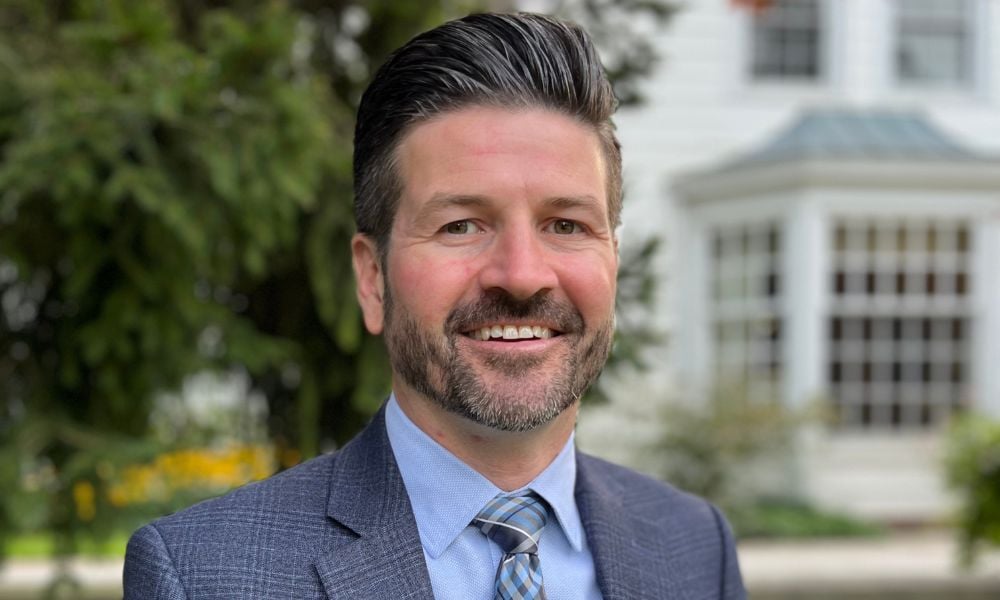Advisor explains why he told clients to liquidate some of their investments, resulting in around $8 million in outflows earlier this year

Trevor Theobald saw a lot of money flow out of his practice at the start of 2023. Some of that was due to a few sizable estate claims linked to deceased clients with beneficiaries across the border, but another significant portion of his AUM was liquidated based on Theobald’s own advice. The Financial Planner with CWP Financial Services Inc. (Sun Life) told WP that as his clients saw interest rates rising and the cost of debt skyrocketing, he suggested they liquidate some of their non registered assets or use available cash to pay down debts and set themselves up for future growth.
While his outflows could be another instance of the old mantra ‘no good deed goes unpunished,’ Theobald is pleased to have helped his clients make what he views as the right decision at the right time. He explains some of how he helped them repurpose assets to minimize or pay off debts that had been growing more expensive in recent years. He outlined, as well, how in the months since those AUM outlays he’s been able to rebuild that side of his business by consolidating outside clients assets and by taking on a few new clients linked to strong referrals. He maintained that as clients face new financial hardships and realities, his actions were simply the right thing to do.
“We probably saw about $8 million go out the door before the summer this year. And so, from a business gross revenue perspective…that's a material amount of money. The takeaway is that, we always have a client centric focus. And if it's the right thing to do, then it's the right thing to do. And if you continuously do the right thing, then business will always be there,” Theobald says. “If there's a short-term pain point, on the business revenue side of things, that's just something that you live through. Because it's so important to make sure that you're doing the right thing for your clients…While it's not a Canadian industry requirement, our CWP Team still operates with a fiduciary mindset within our practice.”
That responsibility manifested in a thoughtful approach to debt repayment. At the start of 2023, Theobald saw he had a number of clients with mortgages coming up for renewal. They also had a relatively substantial base of assets in their non registered accounts and TFSAs. Often, his approach as a financial planner is to look at each decision his client makes on the basis of whether it improves their cashflow or their net worth. The rising costs of mortgage debt meant that his clients were facing a negative impact to their cashflow. Paying off debt, conversely, would mean a guaranteed increase in cashflow and net worth over time.
Theobald explains that paying off an asset-backed debt effectively increases a client’s net worth over time by the same amount as the interest rate they would have been paying on that debt. That amount is essentially crystallized as a guaranteed rate of return, but in the form of expense reduction. And when that debt is linked to a principal residence or personal-use property, the expense reduction is after tax. Theobald would question his clients, asking “how much would your money need generate in higher returns to take on the additional risk of holding securities while giving up an option for a guaranteed return.” When debt is cheaper, it’s easier to trade off that guaranteed rate, as it’s more likely market returns will far exceed it. When debt is more expensive, and especially as returns have been somewhat muted this year, paying off mortgage debt can look more attractive from a total returns standpoint.
Theobald notes that this guaranteed return approach may appear to contradict compounding, the idea that the longer you spend invested the greater wealth you build in the long term. However, he notes that his clients have remained invested through their registered accounts, and highlights that in the context of a short-term trade-off this approach can make sense. Returns have been harder to come by this year, and his clients haven’t lost out as much as they might during a full-on bull market. At the same time, the payments they would have been making towards their mortgages are now being plied back into their investment accounts, setting them up for the next stage of long-term growth.
One of Theobald’s newer clients, for example, is an immigrant to Canada whose husband — himself a Canadian with children from a previous marriage — had recently passed away without a will. In the midst of a deeply complex estate process, this client was being offered mortgage renewals from her bank that would have involved longer amortizations and over $200,000 in extra interest payments over time. By liquidating some of her available investment accounts to pay off the mortgage entirely, this client now has far less stress and is contributing her previous biweekly mortgage payment back into her investment accounts.
In the months since Theobald dropped $8 million in AUM, he has seen much of that money flow back to his practice through significantly increased bi-weekly and monthly PACs and referrals. Beyond that, he has continued to pursue opportunity, find connection, and operating his practice as he always has.
“From a business planning perspective, we might not end the year where we would have projected at the start of the year. Markets continue to change but our commitment to doing the right thing for clients never will.” Theobald says. “We continue to prove to ourselves that doing the right thing for clients surpasses all else and that business success will continue to show up in some form. Always.”



